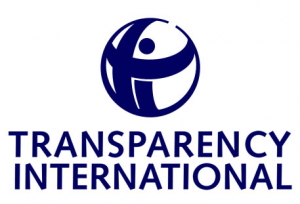Transparency International responds to ECA’s criticism of perception-based corruption assessments
 Last week the Economic Commission for Africa (ECA) issued a statement on a yet to be released report calling for a departure from perception-based measurement of corruption, and cross-country comparisons which it says are flawed and fail to provide enough guidance for policy.
Last week the Economic Commission for Africa (ECA) issued a statement on a yet to be released report calling for a departure from perception-based measurement of corruption, and cross-country comparisons which it says are flawed and fail to provide enough guidance for policy.
The ECA in the fourth edition of its African Governance Report (AGR IV) titled “Measuring corruption in Africa: the international dimension matters”, says prominent use of experts’ assessments and their re-evaluation of available data, the tendency to focus on the response of criminal justice systems to corruption instead of the true extent and nature of the crime itself, and the ambiguity in definition, make current approaches to assessing corruption not very useful for policy making.
Following the publication of a news item on the report, ghanabusinessnews.com sought the views of global anti-corruption organization, Transparency International (TI) on the positions expressed by the ECA.
TI is known for its Corruption Perception Index, an assessment of the perceived levels of corruption which ranks over 170 countries across the world.
The Research Coordinator, for TI, Santhosh Srinivasan who browsed over the report made some comments.
“A perceptions based measure of corruption still has its place and contribution towards corruption measurement. Since many forms of corruption are hidden from the public eye, it is often extremely hard to measure such instances purely based on an experience based corruption measure. For example, procurement related corruption is hidden from public eye and cannot be clearly measured purely through an experiential indicator,” Srinivasan said.
On perceptions of both the public and experts, Santhosh said, “Perceptions of the public and perceptions of experts do matter with regards to fighting corruption. Such perceptions assist in influencing or persuading governments to devote more resources towards fighting corruption. In fact, a recent report produced by AidData found that the Corruption Perceptions Index ranks highest in terms of agenda setting influence amongst policy makers worldwide.”
According to him, no one corruption measure on its own has the ability to capture all the different forms of corruption. It is important to combine the findings of different tools and assessments to gain a better understanding of the levels of corruption and means to reduce the risks of it.
The ECA’s report which will be launched on April 2, 2016 in Addis Ababa during the Africa Development Week, also suggests that perception-based methods which are “anchored on more transparent and representative surveys” should be used cautiously, complemented where possible, with quantitative country or case-specific indicators to produce more useful measures of corruption.
By Emmanuel K. Dogbevi
Copyright © 2015 by Creative Imaginations Publicity
All rights reserved. This article or any portion thereof may not be reproduced or used in any manner whatsoever without the express written permission of the publisher except for the use of brief quotations in reviews.
